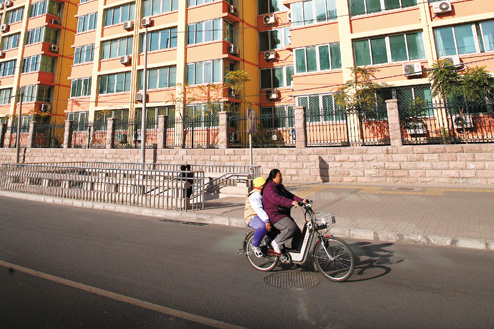Health Insurance
You are not required to have health insurance in China, but most employers offer a basic plan. You can also buy it individually. Prices can vary widely (from ¥3,000 to as much as ¥30,000 per year), depending on factors such as age and previous medical history. Adding on extras such as dental and optical cover will also raise the rates. For many expats, health insurance will be offered through your company. Though the plan may be costly, it’s unlikely you’ll find a better deal, and a safety net is well worth the price.
For those who aren’t covered through their workplace, it is not mandatory to have insurance. But, accidents happen, and medical bills can quickly add up. Basic coverage will include in-patient care and emergencies. Assess both the excess (or ‘deductible’ – the bit you pay before insurance kicks in) and the cost of the insurance plan. A plan with a higher excess will only cover larger emergencies, but it will cost less per year for the plan itself. It’s worth considering a plan that offers repatriation of remains, and possibly emergency relocation.
Insurance plans do not usually cover cosmetic surgery or alternative medicines, infertility issues, or pre-existing conditions. Also, injuries from extreme sports or activities are not normally covered, though you can sometimes get a ‘rider’ to cover them for an additional fee. If you plan on travelling through China, look into a medical evacuation plan offered by International SOS or MedEx. These offer assistance if you are in a remote area.
There is no complete list of insurance providers, but you can check with the hospital or clinic you plan on using and ask them who they accept or prefer. An insurance broker that offers direct billing with your doctor can save a lot of time and hassle.
When buying a plan, read the fine print, ask questions, and ensure you understand when and how to pay. Costs will vary, but a 30 year old male can expect to spend upwards of ¥4,000 a year with an excess of ¥20,000, and twice that amount for a smaller excess and the addition of dental care.
For those who aren’t covered through their workplace, it is not mandatory to have insurance. But, accidents happen, and medical bills can quickly add up. Basic coverage will include in-patient care and emergencies. Assess both the excess (or ‘deductible’ – the bit you pay before insurance kicks in) and the cost of the insurance plan. A plan with a higher excess will only cover larger emergencies, but it will cost less per year for the plan itself. It’s worth considering a plan that offers repatriation of remains, and possibly emergency relocation.
Insurance plans do not usually cover cosmetic surgery or alternative medicines, infertility issues, or pre-existing conditions. Also, injuries from extreme sports or activities are not normally covered, though you can sometimes get a ‘rider’ to cover them for an additional fee. If you plan on travelling through China, look into a medical evacuation plan offered by International SOS or MedEx. These offer assistance if you are in a remote area.
There is no complete list of insurance providers, but you can check with the hospital or clinic you plan on using and ask them who they accept or prefer. An insurance broker that offers direct billing with your doctor can save a lot of time and hassle.
When buying a plan, read the fine print, ask questions, and ensure you understand when and how to pay. Costs will vary, but a 30 year old male can expect to spend upwards of ¥4,000 a year with an excess of ¥20,000, and twice that amount for a smaller excess and the addition of dental care.













